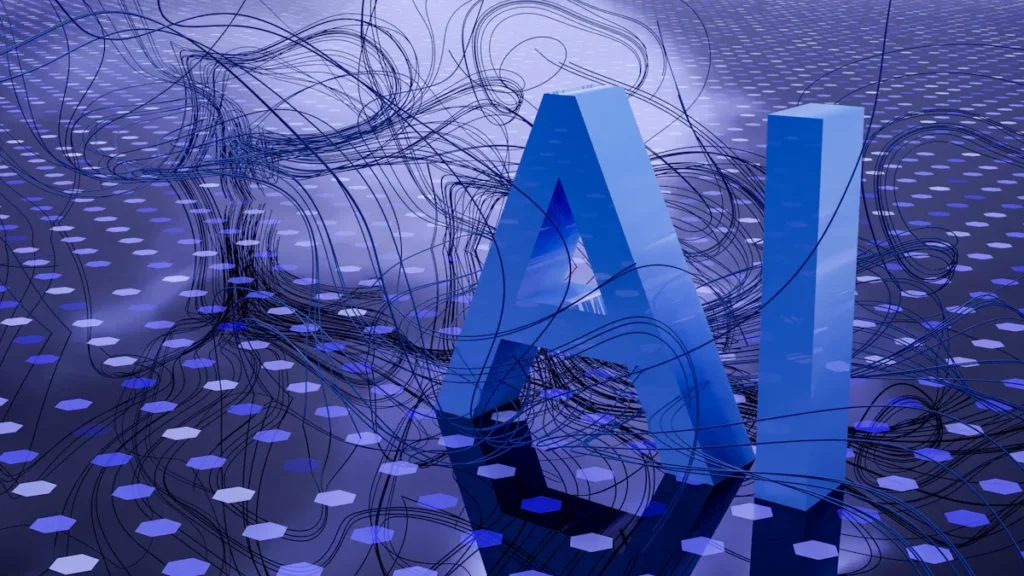AI and Blockchain: The World of Digital Innovations

The rapid evolution of technology has revolutionized our lifestyles and professional environments. AI and blockchain, as digital innovations, are redefining multiple industries. This article delves into the realm of digital innovations, with a particular emphasis on AI and blockchain technologies. Recognizing the influence and possibilities of AI and blockchain is crucial in our progressively digitalized world.
What is AI?
Artificial intelligence (AI) refers to the ability of machines to imitate human intelligence and perform tasks that typically require human intelligence. It is a field of computer science that aims to create intelligent systems that can analyze data, learn from it, and make decisions or take action. AI relies on various algorithms and techniques, with machine learning and neural networks being the most prominent ones.
Machine learning algorithms enable AI systems to learn from data and improve their performance over time. On the other hand, neural networks mimic the structure and functionalities of the human brain, enabling AI systems to recognize patterns, process natural language, and perform tasks such as image recognition or speech synthesis.
AI finds applications in different sectors, including healthcare, finance, manufacturing, and more. AI-powered systems play a crucial role in healthcare by aiding in disease diagnosis, predicting patient outcomes, and suggesting treatment plans. Additionally, in the finance sector, AI algorithms are instrumental for detecting fraud, assessing risks, and facilitating algorithmic trading. In manufacturing, AI drives automation and process optimization, resulting in heightened productivity and significant cost savings.
What is Blockchain?
Blockchain is a decentralized and secure digital ledger that records transactions across multiple computers, called nodes. Each block records a transaction and links to previous blocks to form a chain of blocks. The decentralized nature of blockchain ensures that transactions are transparent, tamper-proof, and resistant to censorship.
Blockchain works by utilizing various concepts and mechanisms, including cryptographic hashing, consensus algorithms, and smart contracts. Cryptographic hashing allows the data within a block to be securely encrypted, ensuring its integrity. Consensus algorithms ensure that the nodes in the network agree on the validity of transactions and maintain the integrity of the blockchain. Smart contracts are self-executing. When certain conditions meet the criteria, predefined actions are carried out.
The applications of blockchain are extensive and span across different industries. In finance, blockchain enables secure and efficient transactions, eliminating the need for intermediaries. Supply chain management can benefit from blockchain’s transparency and traceability, ensuring the authenticity and provenance of products. In healthcare, blockchain can improve interoperability, securely store patient records, and streamline data sharing. These are just a few examples of how blockchain is being applied to revolutionize industries.
The Impact of AI on industries
AI has a significant impact on various industries, revolutionizing the way tasks are performed and improving efficiency. One of the key advantages of AI is automation. AI-powered systems can automate repetitive and mundane tasks, allowing human workers to focus on more complex and creative endeavors. This leads to increased productivity and cost savings for organizations.
Real-life examples of AI implementation can be seen in self-driving cars, chatbots, recommendation systems, and many more. Self-driving cars rely on AI algorithms to navigate and make decisions in real time, promising safer and more efficient transportation. Chatbots provide instant and personalized customer support, enhancing customer satisfaction and reducing the need for human intervention. Recommendation systems, powered by AI, personalize and improve our digital experiences, from Netflix movie recommendations to tailored shopping suggestions.
Despite the numerous benefits, AI also poses challenges and ethical considerations. One concern is the potential biases inherent in AI algorithms, which can lead to unfair or discriminatory outcomes. Privacy concerns arise as AI systems collect and analyze vast amounts of data. Additionally, the displacement of human workers by AI-powered automation raises questions about job security and reskilling.
The Potential of Blockchain in Industries
Blockchain has the potential to enhance security and transparency in various sectors. By eliminating the need for centralized authorities, blockchain offers a decentralized and tamper-proof infrastructure for transactions and record-keeping. This can greatly reduce the risk of fraud and improve trust among participants.
Real-life examples of blockchain implementation include cryptocurrencies like Bitcoin, which enable secure and decentralized digital transactions. Smart contracts, built on blockchain, automate contract enforcement and eliminate the need for intermediaries. Identity verification can also be improved using blockchain, as it provides a reliable and immutable record of identities.
However, blockchain adoption is not without challenges. Scalability is a significant concern, as blockchains can become slow and inefficient as the number of transactions increases. Energy consumption is another consideration, as the computational power required for blockchain operations can be resource-intensive. Additionally, legal and regulatory frameworks need to evolve to accommodate the unique aspects of blockchain technology.
The Synergy between AI and Blockchain

The convergence of AI and blockchain technologies offers exciting possibilities. AI algorithms can analyze large datasets stored on blockchain, increasing the accuracy and reliability of AI predictions and decisions. Blockchain can enhance the security and transparency of AI systems, providing an immutable record of data and processes.
Potential use cases of combining AI and blockchain include AI-powered data marketplaces, where individuals can securely sell their data and AI algorithms can access diverse datasets for training. Blockchain can also address the ethical concerns associated with AI by providing transparency and auditability of AI algorithms’ decision-making process.
This synergy between AI and blockchain opens up a range of future possibilities and trends. From AI-based blockchain consensus algorithms to decentralized AI marketplaces, the integration of these technologies has the potential to transform industries and drive innovation in the digital age.
Embracing Digital Innovations: Best Practices and Strategies
To embrace AI and blockchain technologies, organizations need to adopt a strategic and thoughtful approach.
Here are some key considerations:
Identify Use Cases: Organizations should identify specific use cases where AI or blockchain can bring the most value. This requires understanding the unique challenges and opportunities within their industry and processes.
Data Governance: For AI, high-quality and diverse datasets are crucial for training accurate models. Organizations should establish proper data governance practices to ensure data quality, privacy, and security. For blockchain, organizations need to define data ownership and access rights to maintain transparency and trust.
Partnerships and Collaboration: Embracing digital innovations often requires partnerships and collaboration. Organizations can partner with technology providers, startups, or research institutions to access expertise and resources.
Ethical Considerations: Organizations should consider the ethical implications of AI and blockchain. This includes addressing biases in AI algorithms, ensuring data privacy, and complying with relevant laws and regulations.
Conclusion
As AI and blockchain continue to evolve, their impact on various industries will only grow stronger. The world of digital innovations offers immense potential for creating a more efficient and secure future. By understanding the concepts and applications of AI and blockchain, organizations can leverage these technologies to drive innovation, improve processes, and deliver enhanced customer experiences. Embracing AI and blockchain requires a thoughtful approach, considering the unique challenges and opportunities within each industry. Let us encourage the exploration and adoption of AI and blockchain for a digitally transformed world.
https://fiscalfitnessflow.com/index.php/2024/02/23/exploring-generative-ai-the-world-of-artificial-intelligence/
https://crypto.com/us
FAQs
Q: What are the potential use cases of AI and Blockchain?
A: The potential use cases of AI and Blockchain include integrating AI models into blockchain networks, leveraging generative AI for creating new content on the blockchain, using AI for data analysis and smart contracts, and more.
Q: How can AI be used in the blockchain technology?
A: AI can be used in blockchain technology for various purposes such as enhancing security through AI agents, optimizing blockchain systems through data analysis, and providing AI-driven recommendations for improving blockchain processes.
Q: What is the future of AI and Blockchain technology convergence?
A: The future of AI and Blockchain technology convergence looks promising, with possibilities of AI enhancing blockchain systems, enabling better data analysis, and providing innovative solutions for various industries.
Q: What are some use cases of AI in Blockchain?
A: Some use cases of AI in Blockchain include using AI for fraud detection in blockchain transactions, integrating AI algorithms for smart contract automation, and applying generative AI for creating unique digital assets on the blockchain.
Q: How can AI and Blockchain complement each other?
A: AI and Blockchain complement each other by combining the data processing capabilities of AI with the secure and transparent decentralized ledger technology of Blockchain, creating opportunities for innovative solutions in various industries.







